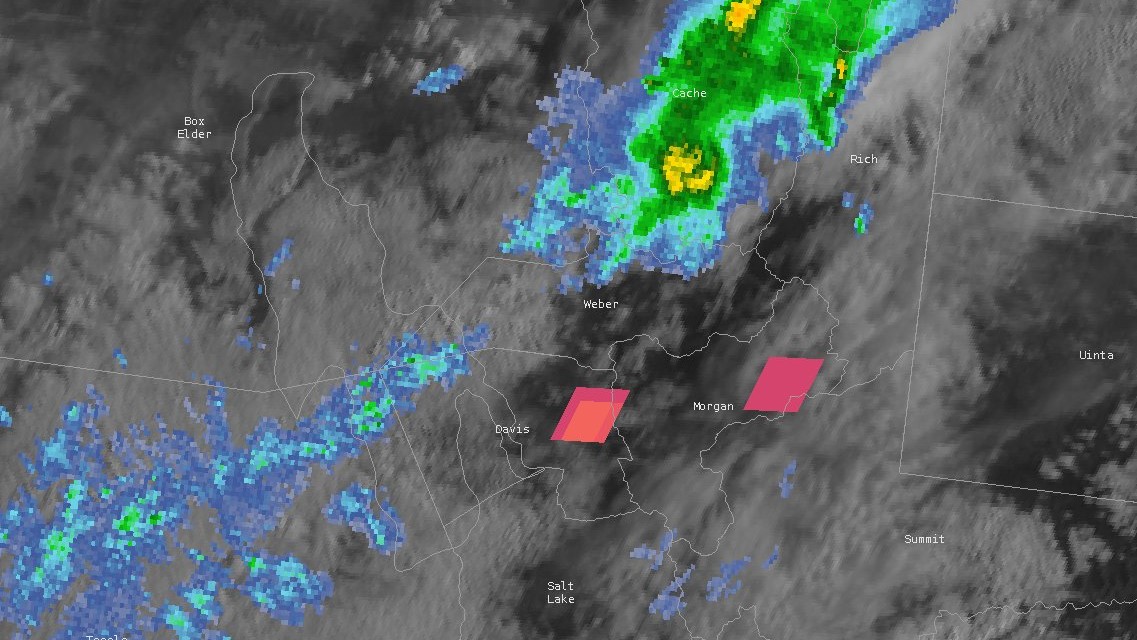Exploding meteor startles Utah
A boom that rattled Utah Saturday may have come from the Perseid meteor shower.

Get the world’s most fascinating discoveries delivered straight to your inbox.
You are now subscribed
Your newsletter sign-up was successful
Want to add more newsletters?

Delivered Daily
Daily Newsletter
Sign up for the latest discoveries, groundbreaking research and fascinating breakthroughs that impact you and the wider world direct to your inbox.

Once a week
Life's Little Mysteries
Feed your curiosity with an exclusive mystery every week, solved with science and delivered direct to your inbox before it's seen anywhere else.

Once a week
How It Works
Sign up to our free science & technology newsletter for your weekly fix of fascinating articles, quick quizzes, amazing images, and more

Delivered daily
Space.com Newsletter
Breaking space news, the latest updates on rocket launches, skywatching events and more!

Once a month
Watch This Space
Sign up to our monthly entertainment newsletter to keep up with all our coverage of the latest sci-fi and space movies, tv shows, games and books.

Once a week
Night Sky This Week
Discover this week's must-see night sky events, moon phases, and stunning astrophotos. Sign up for our skywatching newsletter and explore the universe with us!
Join the club
Get full access to premium articles, exclusive features and a growing list of member rewards.
A loud boom that shattered the Saturday morning quiet in Utah may have been a Perseid meteor.
According to The Deseret News, the noise startled northern Utah at about 8:32 a.m. local time. Numerous home security and doorbell cams caught the sound. Seismographs ruled out an earthquake, and the National Weather Service Salt Lake City soon posted a radar image of two red flashes on a lightning monitor — in a spot where there was neither lightning nor a storm. The flashes were likely the meteor trail and flash, according to the weather service.
Home security camera footage from Roy, Utah, soon clinched the identification: Posted to Twitter, the video shows a blue fireball streaking across the morning sky just before the boom.
Numerous reports of the fireball were posted to the American Meteor Society.
Related: What’s the difference between asteroids, comets and meteors?
There have been no reports of meteorites found from the explosion, though a NASA volunteer told KSLTV that the explosion may have scattered space rock fragments across the area. The destruction of the meteor makes it hard to determine where it originated from, but a likely culprit is the Perseids, experts told the Deseret News.
The Perseid meteor shower occurs each year in July and August as Earth swings through debris left by the comet 109P/Swift-Tuttle. Most of this debris is miniscule, but it hits Earth's atmosphere at 133,200 mph (214,360 km/h), according to the American Meteor Society. This year, the Perseids peaked on Aug. 11 and 12.
Get the world’s most fascinating discoveries delivered straight to your inbox.
Meteors create sonic booms when they move across the atmosphere faster than the speed of sound, according to CalTech's CoolCosmos. Because light moves faster than sound, the "boom" of a traveling meteor usually comes several seconds after the sight of the fireball. But in most cases, meteors are too high in the atmosphere for the sound to reach any listening ears on the ground.
Falling space rock is relatively common. Earlier this year, a fireball lit up the skies over Ontario, Canada. Another scattered small meteorites (space rocks that reach the ground) over Mississippi. On rare occasions, meteors large enough to cause damage streak through the atmosphere. In 2013, a large fireball exploded over Chelyabinsk, Russia, blowing out thousands of windows and creating an eye-burning flash. The meteor that caused the fireball was an estimated 65 feet (20 meters) across, according to EarthSky.
Originally published on Live Science.

Stephanie Pappas is a contributing writer for Live Science, covering topics ranging from geoscience to archaeology to the human brain and behavior. She was previously a senior writer for Live Science but is now a freelancer based in Denver, Colorado, and regularly contributes to Scientific American and The Monitor, the monthly magazine of the American Psychological Association. Stephanie received a bachelor's degree in psychology from the University of South Carolina and a graduate certificate in science communication from the University of California, Santa Cruz.
 Live Science Plus
Live Science Plus





